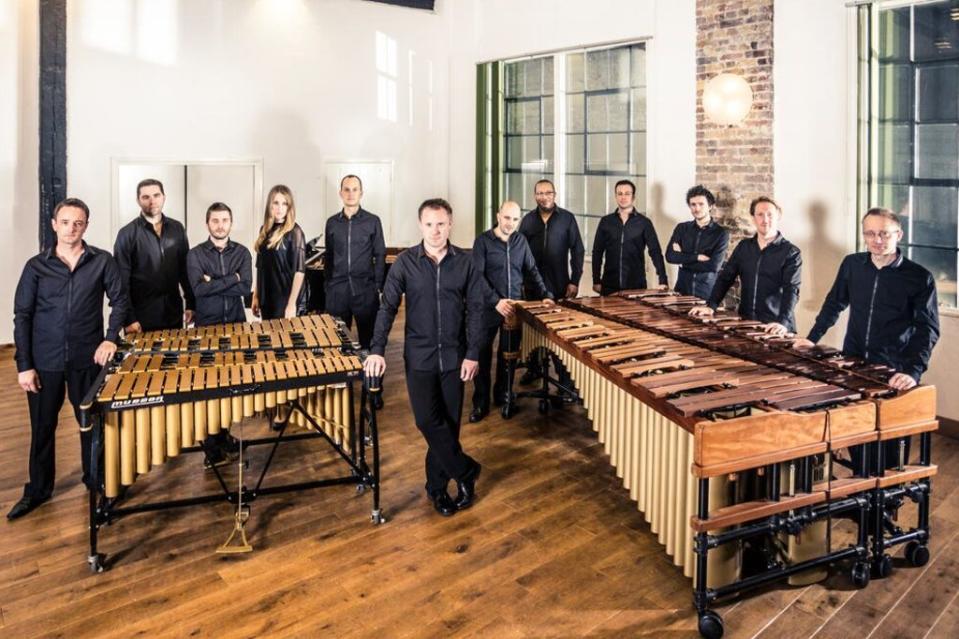Colin Currie Group/Synergy Vocals review: A glittering birthday card to Steve Reich

At the start of his composing career, Steve Reich supported himself by driving a New York cab and getting his music performed in low-rent art galleries. Concert halls weren’t interested in him, and he wasn’t interested in concert halls. Today, nearly 60 years later, he’s one of the most performed composers in the world, whose music attracts an unusually diverse audience, hipsters and fogeys happily mixing and mingling.
This performance by the Colin Currie Group was more or less a birthday card to Reich, who turned 85 earlier this month. Currie is a virtuoso percussionist, although last night he spent more time conducting than percussing. Here, his group was augmented by Synergy Vocals and a miniature orchestra of musicians on sundry string, wind and keyboard instruments. Of the four works on the programme, the first three all dated from the last decade or so.
Runner (2016) began with pianos setting up a swaying rhythm against each other, characteristically undulating strings underlining the sense of rhythm in motion. At one point, two violins traded riffs with each other, and the whole piece exuded a distinctly jazzy feel until, with one chopping gesture, Currie brought proceedings to an abrupt end. The jazz connection was even more explicit in Quartet (2013), in which two bright and breezy vibraphones – one played by Currie – worked against two pianos used almost percussively, with resonance and sound decay acting something like a fifth member of the line-up.
In between, Currie gave us a brand-new piece, Traveler’s Prayer having been premiered by the same forces in Amsterdam last Saturday. Like much of Reich’s music, it draws on Hebrew tradition without being specifically religious. It begins with two tenors chanting Old Testament Psalms while strings provide an accompanying drone that takes on an almost vocal quality. Two sopranos join the cantillation, laying out slowly winding melodies that seemed drawn from a kind of mournful ecstasy. Traveler’s Prayer was conceived before the pandemic but completed in its midst; it was hard not to hear it as shaped by our shared Covid experiences.
The final work was the oldest, the longest, and sonically the richest. Tehillim (the Hebrew word for “psalms”) opens with the most basic of all instruments: two hands clapping, a stick banged on a frame, a voice chanting. From that point of utter simplicity, the music weaves a dizzying tapestry of intricate repetitions, rhythmic shifts and overlapping textures. If at times, amplification flattened out some of the nuances, particularly for the voices, this was big-band Reich, and it built irresistibly to a moment of release. Tehillim may be 40 years old, but it has lost none of its redemptive power.
Read More
Rufus Wainwright at the Palladium: strangely muted, if gently sparkly
Ellie Goulding at the Eventim Apollo review: sparkly as a sequin
Burna Boy: ‘I’m at a point where I feel like I’ve got nothing to prove’

 Yahoo Finance
Yahoo Finance 